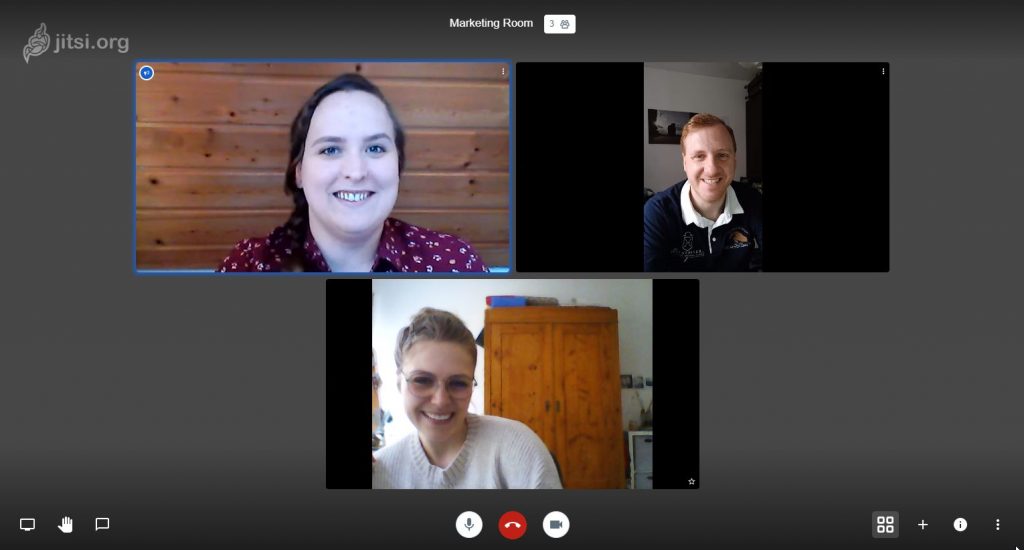

When running the above command you will be asked to enter your domain name. If your server already has Ngnix running on port 443 in the same machine it will skip this virtual host configuration as it will conflict with port 443. This command will check whether Nginx or Apache is present (first check Nginix if not check for apache) and configure a virtual host within the server to access Jitsi meet.
JITSI MEET UP INSTALL
Sudo ufw status verbose Install Jitsi meet # jitsi-meet installation sudo apt install jitsi-meet To open these ports from your virtual machine use the following commands sudo ufw allow 80/tcp sudo ufw allow 443/tcp sudo ufw allow 10000/udp sudo ufw allow 22/tcp sudo ufw allow 3478/udp sudo ufw allow 5349/tcp sudo ufw allow 5222/tcp sudo ufw enableĪfter settings these we can check the status of those with the following command. 5349 TCP - for fallback network video/audio communications over TCP (when UDP is blocked for example), served by coturn.3478 UDP - for querying the stun server (coturn, optional, needs config.js change to enable it).22 TCP - if you access your server using SSH (change the port accordingly if it’s not 22).10000 UDP - for general network video/audio communications.443 TCP - for general access to Jitsi Meet.80 TCP - for SSL certificate verification/renewal with Let’s Encrypt.If your cloud provider has a place to set up inbound and outbound rules in your dashboard you should open these ports there as well.
JITSI MEET UP UPDATE
curl | sudo sh -c 'gpg -dearmor > /usr/share/keyrings/jitsi-keyring.gpg' echo 'deb stable/' | sudo tee /etc/apt//jitsi-stable.list > /dev/null # update all package sources sudo apt update Setup and configure your firewallįollowing ports are needed to be open in the firewall. Add the Jitsi package repositoryįollowing commands will add the Jitsi repository to your package source and make it available to use. Make sure to replace x.x.x.x with your server public Ip and with your server domain name. Then add the same to the /etc/hosts file. If your server virtual machine already have setup FQDN is already setup in DNS you can used following command to set it. Set up the Fully Qualified Domain Name (FQDN) (optional) sudo apt-add-repository universe # Retrieve the latest package versions across all repositories sudo apt update On the ubuntu system, jitsi needs packages from Ubuntu universe package repository to make sure this is enabled used following command. Then ensure apt repositories served via HTTPS to do that use the following code. # Retrieve the latest package versions across all repositories apt update Then make sure your system is up to date and all required packages are installed. Not compulsory to use these features you can use even 1GB ram and 1CPU machine but when I used that when issuing commands it is getting slow.įirst, make sure your system is up to date and all required packages are installed With this configuration, you can easily run all commands and the Jitsi server without stuck. With this simple app, you get quality and reliability.Most of the command need root or sudo access.įrom my personal experience, I suggest using the minimum configuration of a server like this. If you're looking for an alternative app for a simple and secure way to communicate with friends, family, or colleagues, then Jitsi Meet is a great choice. And even so, the audio and video quality is excellent. And unlike many similar apps, in this case, you don't have to create an account or enter any of your personal information. This means that you can invite as many people as you want to your group calls.
JITSI MEET UP PASSWORD
Despite how easy it is to use, Jitsi Meet gives you total control over who can enter your conversations using the password you set.įurthermore, there are no limits to using Jitsi Meet. In either case, the users who intend to join the conversation will need to know the name of the group so that they can find it. After that, you have the possibility to create a group yourself or join one that another user has already created. When you open Jitsi Meet you can indicate whether you want to make a voice-only call or hold a videoconference. Jitsi Meet is an incredibly practical app that lets you have group video chats with your family, friends, and coworkers without the need to register and without any limit to the number of participants.


 0 kommentar(er)
0 kommentar(er)
